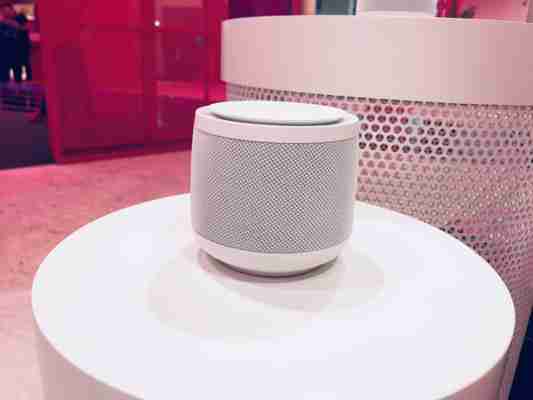
Bestes gaming Headset (200€)?
Mic ist rellativ egal, da ich ein anderes verwende

Warum dann nicht einfach nur "gute Kopfhörer" mit dem Suchbegriff gaming Headset wirst du natürlich nur bunt leuchtende Spielzeuge finden sie an die Ästhetikvorstellungen 12jähriger appellieren.
Tragekomfort schreibt dir ja sehr wichtig zu sein, hier kann ich over ear Kopfhörer offener Bauweise empfehlen, die haben keine Notwendigkeit fest anzuliegen da sie eh keine Geräusche abschirmen und sind deshalb auch nach stundenlangem tragen sehr bequem.
Zum Beispiel:
Was den beyerdynamic DT990 angeht, die 32 Ohm Variante ist dafür geeignet direkt an PC, Tablet, etc verwendet zu werden. Die 250 und 600 Ohm Variante erfordern einen zusätzlichen Verstärker, sind aber weniger Rauschempfindlich (für den Heimgebrauch wird das keinen Unterschied machen)
Vor-/Nachteil offener Kopfhörer ist natürlich das Soundbleeding. Heißt wer mit dir im Raum ist darf das volle Akustikprogramm mitgenießen und du bekommst noch rudimentär deine Umgebung mit (Türklingel, Nachbarn die sich aufregen etc.)
Wenn das Soundbleeding nicht gewünscht ist helfen nur geschlossene Kopfhörer.
Was die Beyerdynamic DT770 angeht gilt der gleiche Hinweis wie schon bei den DT990, die höheren Ohm Werte sind Varianten für den Einsatz im Studio am Verstärker um Rauschen zu minimieren.
Der Klang ist in allen drei Varianten nahezu gleich.
Die Sony hab ich hier Mal mit reingenommen weil ich diese auch persönlich nutze. Die sind super empfindlich und stellen selbst leiseste Geräusche dar was in kompetetiven spielen sehr sinnvoll ist.
Was den comfort mit Brille angeht, dazu kann ich leider nix sagen da ich selbst keine Brille trage, aber auch die empfohlenen geschlossenen Kopfhörer drücken nicht zu fest auf die Ohren, das sollte also OK sein.
Damit sind also die Anforderungspunkte 1-4 abgehakt. Bei Punkt 5 > die einzige Software ist der Treiber deines Soundchip. Aber daran musst du nix einstellen. Das einzige was interessant wird ist in den Optionen der PC Spiele den Soundmodus auf Kopfhörer zu stellen, damit bekommst du die korrekte räumliche Wiedergabe auf deine Ohren.
Guide to Set Up Your Voice Assistant Smart Speakers
Amazon Echo

The Amazon Echo family consists of several products, each with the Alexa digital assistant at your beck and call. They start with the inexpensive and small Amazon Echo Dot and go up from there in size, audio quality and price.
Some Alexa-powered devices have screens, too, and some non-Amazon products have Alexa built in, too.
No matter what Amazon Echo device you have, setting them up is a similar process.
1. Plug your Amazon Echo into the wall
You'll see a blue ring start circling around the top of the speaker. In about a minute, you'll hear Alexa say “Hello,” and then instruct you to open the Alexa app to complete the setup.
2. Download the Alexa app
If you haven't done so already, download the Alexa app to your smartphone or tablet. It will prompt you to set up your device once you open the app. If you don't get this prompt, tap the Devices icon in the lower right of the app to follow instructions, which includes joining it to your Wi-Fi, which is required only once.
You also can start the setup process from your computer browser at It's optional, but you can connect your small smart speaker to a larger one if you want better sound. You can do this wirelessly, over Bluetooth in the app's Device Settings area or with an auxiliary cable.
3. Start talking
To use your Alexa device, wake “her” up by saying her name. You'll hear a chime and see the blue ring activated.
Now you can ask a question or give a command.
If you already have a family member or pet with the name Alexa, you can change the “wake word” on your device by choosing another one — such as Amazon, Computer or Echo — in the app's Device Settings. You can talk quickly, but try to talk clearly.
Tap the buttons on top of the Echo to play and pause music or adjust its volume.
4. Train Alexa if needed
This is optional but helpful, especially if you have an accent. In the Alexa app, go to Settings | Accounts | Your Voice. Hit Begin to start the process of training Alexa to learn your voice.
Alexa also can guide you through the steps verbally. What's more, you can guide Alexa on different voices in your household through the app, Settings | Alexa Account | Recognized Voices.
This way, your smart speaker knows it's you and not, say, your partner, and will deliver personalized information such as music, calendar entries and so on.
Best Smart Speakers Guide 2020: HomePod, Sonos One, Amazon Echo Show – Rolling Stone
We run down the latest offerings, from Apple's HomePod to the Sonos One. Which one is right for you?
The hottest category in tech right now is smart speakers: wireless speakers that have a brain (either Apple’s Siri, Google Assistant or Amazon’s Alexa) and respond to voice control. Now that Apple’s long-awaited HomePod is finally here, we rounded up the latest and greatest smart speakers and tested them to find out which is the best for you – whether you’re an audiophile or just someone who wants to have a fulfilling conversation with your living-room sound-system.



February 11,2023 Post by :Luka Müller